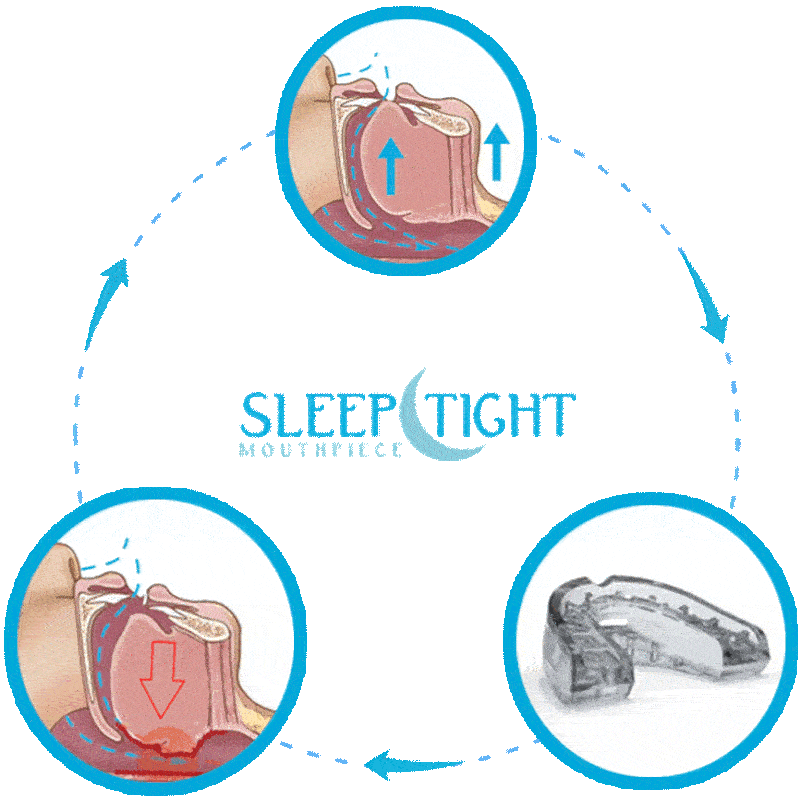Have you ever noticed that after a day of eating junk food and not moving much, you tend to have a restless night’s sleep? Or maybe, on the days when you eat nutritious meals and get some exercise, you sleep like a baby? Well, it’s not just a coincidence – your diet and exercise habits can have a direct impact on the quality of your sleep. In this article, we will take a closer look at how diet and exercise can influence your sleep, and how making healthy choices in these areas can lead to better nights of rest.
When it comes to diet, what you eat throughout the day can affect your sleep patterns. Consuming a diet that is high in sugar and processed foods can make it difficult for your body to relax and unwind at night. On the other hand, a diet that includes plenty of fruits, vegetables, whole grains, and lean proteins can promote better sleep. Additionally, certain nutrients, like magnesium and vitamin D, have been found to play a role in sleep regulation. So, by fueling your body with nutrient-dense foods, you are setting yourself up for a more restful night’s sleep. In terms of exercise, being physically active during the day can help improve your sleep quality. Regular exercise has been shown to reduce the time it takes to fall asleep and increase the amount of deep sleep you get each night. So, whether it’s going for a jog, hitting the gym, or even just taking a brisk walk, incorporating some form of physical activity into your day can have a positive impact on your sleep.
The Importance of Sleep Quality
Getting a good night’s sleep is essential for your overall well-being. Not only does it leave you feeling refreshed and energized, but it also plays a crucial role in both your physical and mental health. Achieving high-quality sleep is not only about the number of hours you sleep but also about the quality of sleep you get. In this article, we will explore the role of diet and exercise in sleep quality, as well as the physical and mental health benefits of getting a good night’s sleep.
Effects of Diet on Sleep Quality
The Relationship between Diet and Sleep Duration
Your diet can have a significant impact on the duration and quality of your sleep. Research has shown that certain nutrients can help regulate sleep patterns and promote better sleep quality. For example, consuming foods rich in magnesium, such as leafy greens, legumes, and nuts, has been linked to better sleep duration and quality. On the other hand, a diet high in processed foods and refined sugars can lead to poorer sleep quality and increased sleep disturbances.
Specific Nutrients that Affect Sleep Quality
In addition to magnesium, there are other nutrients that play a role in sleep quality. For instance, consuming foods rich in tryptophan, such as turkey, salmon, and eggs, can help promote the production of serotonin and melatonin, two hormones that regulate sleep. Other minerals like calcium and potassium are also important for maintaining healthy sleep patterns. Incorporating foods like dairy products, bananas, and almonds into your diet can help improve your sleep quality.
The Impact of Caffeine and Alcohol on Sleep
While certain nutrients can promote better sleep, it is also important to be mindful of substances that can disrupt sleep patterns. Caffeine, commonly found in coffee, tea, and many soft drinks, is a stimulant that can interfere with falling asleep and staying asleep. It is advisable to limit your caffeine consumption, especially in the evening. Similarly, alcohol may initially make you feel drowsy, but it can disrupt the later stages of sleep, leading to fragmented and poorer quality sleep.
Effects of Exercise on Sleep Quality
How Regular Exercise Promotes Better Sleep
Exercise is not only beneficial for your physical health but also plays a vital role in improving sleep quality. Engaging in regular physical activity helps regulate your internal body clock, known as the circadian rhythm, which controls the timing of sleep. Exercise also reduces stress and anxiety, which can contribute to better sleep. Additionally, physical activity has been shown to increase the amount of slow-wave sleep, the deep and restorative stage of sleep.
The Optimal Timing and Intensity of Exercise for Improved Sleep
To maximize the sleep-enhancing benefits of exercise, it is important to consider the timing and intensity of your workouts. Engaging in moderate aerobic exercise, such as walking or cycling, earlier in the day can help regulate your sleep-wake cycle and promote better sleep. However, vigorous exercise close to bedtime can increase alertness and make it harder to fall asleep. It is recommended to finish your workout at least a few hours before bedtime to allow your body to wind down.
The Influence of Different Types of Exercises on Sleep Quality
Different types of exercises can have varying effects on sleep quality. For example, yoga and stretching exercises promote relaxation and reduce muscle tension, making them ideal for improving sleep. On the other hand, high-intensity interval training (HIIT) workouts may initially increase arousal, but regular HIIT sessions have been shown to enhance overall sleep quality over time. It is important to find the type of exercise that suits your preferences and needs to achieve the best sleep outcome.
Healthy Eating Habits for Better Sleep
The Importance of a Balanced Diet for Quality Sleep
Maintaining a balanced diet is crucial for overall health, including sleep quality. A balanced diet provides your body with the necessary nutrients to support optimal sleep. It is important to consume a variety of foods from all food groups, including fruits, vegetables, whole grains, lean proteins, and healthy fats. Avoiding excessive intake of processed foods and sugary snacks can also contribute to better sleep quality.
Foods to Incorporate in an Evening Meal for Better Sleep
Certain foods can have a positive impact on sleep when incorporated into an evening meal. For example, foods rich in carbohydrates, such as whole grains, can help increase the production of serotonin, a hormone that helps promote sleep. Including protein-rich foods, such as lean meats, fish, and tofu, can also support the production of sleep-regulating hormones. Additionally, incorporating foods high in vitamins and minerals, like fruits and vegetables, can contribute to better sleep quality.
The Role of Hydration in Sleep Quality
Staying well-hydrated throughout the day can also have a positive effect on sleep quality. Dehydration can lead to discomfort and disrupt sleep. It is important to consume an adequate amount of water and other hydrating fluids. However, it is advisable to limit your fluid intake close to bedtime to prevent disruptions from frequent trips to the bathroom during the night.

Sleep-Friendly Exercise Regimens
The Best Exercise Routines for Improving Sleep Quality
When considering exercise regimens for better sleep quality, it is important to find activities that you enjoy and are sustainable for you. Some of the best exercises for improving sleep include aerobic exercises such as jogging, swimming, or dancing. These activities increase your heart rate and body temperature, promoting better sleep at night. Strength training exercises, such as lifting weights, can also enhance sleep quality by boosting muscle recovery and growth.
Incorporating Relaxation Exercises into Your Fitness Routine for Better Sleep
In addition to aerobic and strength training exercises, incorporating relaxation exercises into your fitness routine can further enhance sleep quality. Activities such as yoga, tai chi, and Pilates promote relaxation and reduce stress and anxiety, contributing to better sleep. These low-impact exercises not only improve physical flexibility and strength but also provide mental relaxation and improve sleep quality.
The Effects of Exercise on Specific Sleep Disorders
Exercise can have particular benefits for individuals with specific sleep disorders. For example, regular exercise has been shown to improve sleep quality in individuals with insomnia. It helps regulate sleep-wake cycles and reduces anxiety and depressive symptoms, which are common contributors to insomnia. In individuals with sleep apnea, exercise can help improve cardiovascular fitness, which can alleviate symptoms and lead to better sleep quality.
Establishing a Sleep Routine
Creating a Consistent Sleep Schedule for Enhanced Sleep Quality
Establishing a consistent sleep schedule is essential for obtaining high-quality sleep. Going to bed and waking up at the same time each day helps regulate your internal clock and promotes better sleep quality. It is important to prioritize sleep and allocate enough time for a full night’s rest. Consistency is key in training your body to recognize when it is time to sleep, making it easier to fall asleep and wake up feeling refreshed.
The Importance of Winding Down before Bed
Winding down before bed is crucial for preparing your body and mind for sleep. Engaging in relaxing activities, such as reading a book, taking a warm bath, or practicing relaxation techniques, can help signal to your body that it is time to sleep. Creating a quiet and comfortable environment in your bedroom, free from distractions and excessive noise, can also contribute to better sleep quality.
Utilizing Relaxation Techniques and Rituals to Prepare for Sleep
In addition to winding down before bed, incorporating relaxation techniques into your evening routine can promote better sleep quality. Deep breathing exercises, progressive muscle relaxation, and meditation can help calm the mind and relax the body, making it easier to fall asleep. Experiment with different relaxation techniques to find the ones that work best for you and make them a regular part of your bedtime routine.

Tips for Improving Sleep Quality Through Diet and Exercise
Practical Ways to Incorporate Healthier Food Choices into Your Diet
Improving sleep quality through diet starts with making healthier food choices. Some practical ways to incorporate healthier foods into your diet include adding fruits and vegetables to every meal, replacing sugary snacks with nuts or seeds, and choosing whole grains over refined grains. Meal planning and preparation can also help you make healthier food choices throughout the week. Gradually replacing unhealthy options with nutritious alternatives can have a positive impact on your sleep quality.
Finding Exercise Activities that You Enjoy and Motivate You to Stay Active
Finding exercise activities that you enjoy is essential for maintaining a consistent fitness routine. Whether it’s joining a sports team, taking dance classes, or going for hikes, choose activities that you genuinely enjoy and look forward to. Exercise should not feel like a chore, but rather a fun and rewarding activity. When you find exercise activities that you enjoy, you are more likely to stay motivated and consistent, leading to improved sleep quality.
Creating a Personalized Plan to Address Sleep Issues Through Lifestyle Changes
If you are facing sleep issues, creating a personalized plan that addresses both diet and exercise can be beneficial. Start by tracking your sleep patterns and identifying any potential triggers or patterns that may be impacting your sleep quality. Make small, manageable changes to your diet and exercise routine, such as incorporating more sleep-friendly foods and adjusting the timing or intensity of your workouts. Monitor the effects of these changes on your sleep and adjust your plan accordingly.
Potential Challenges and Solutions
Common Obstacles in Maintaining a Healthy Diet and Exercise Routine
Maintaining a healthy diet and exercise routine can be challenging, especially in today’s fast-paced world. Common obstacles include lack of time, lack of motivation, and the temptation of unhealthy food choices. It is important to identify these obstacles and come up with strategies to overcome them. Planning and scheduling your meals and workouts in advance, finding exercise buddies or joining fitness classes for accountability, and preparing healthy snacks to have on hand are just a few solutions to help you stay on track.
Strategies to Overcome Barriers and Stay on Track with Healthy Habits
To stay on track with healthy habits, it is important to set realistic goals and be consistent. Breaking down your goals into smaller, achievable steps can make them more manageable. Find ways to make healthy eating and exercise enjoyable by trying new recipes, exploring different workout routines, and rewarding yourself for reaching milestones. Surrounding yourself with a support system of friends, family, or even online communities can also provide encouragement and accountability.
Seeking Professional Guidance When Facing Sleep-Related Difficulties
If you are facing persistent sleep issues despite making lifestyle changes, it may be helpful to seek professional guidance. Consulting a healthcare professional or a sleep specialist can provide you with a more comprehensive evaluation of your sleep patterns and identify any underlying sleep disorders or medical conditions. They can offer personalized advice and recommend specific interventions or treatments to improve your sleep quality.
Other Factors Influencing Sleep Quality
The Impact of Stress and Anxiety on Sleep
Aside from diet and exercise, other factors can significantly influence sleep quality. Stress and anxiety can contribute to difficulty falling asleep, staying asleep, or experiencing restless sleep. It is important to manage stress through techniques such as regular exercise, practicing relaxation techniques, and seeking support from friends and loved ones. If stress or anxiety persists and affects your sleep, consider speaking with a healthcare professional for additional support.
The Role of Environmental Factors in Promoting Better Sleep
Creating a sleep-friendly environment can also enhance sleep quality. Factors such as noise, light, temperature, and comfort play a role in promoting optimal sleep conditions. Eliminating sources of noise or using white noise machines, blocking out excessive light with curtains or sleep masks, maintaining a comfortable room temperature, and ensuring a supportive mattress and pillows can all contribute to a more conducive sleep environment.
Conclusion
The relationship between diet, exercise, and sleep quality is complex and interconnected. Making conscious choices about what you eat and regularly engaging in physical activity can positively impact your sleep quality. By incorporating sleep-friendly foods into your diet and finding exercise activities that you enjoy, you can create a holistic approach to improving sleep. Establishing a consistent sleep routine, practicing relaxation techniques, and addressing potential obstacles are also essential in achieving high-quality sleep. Prioritizing both your physical and mental well-being through healthy lifestyle choices will not only benefit your sleep but also contribute to a healthier and happier life overall.



